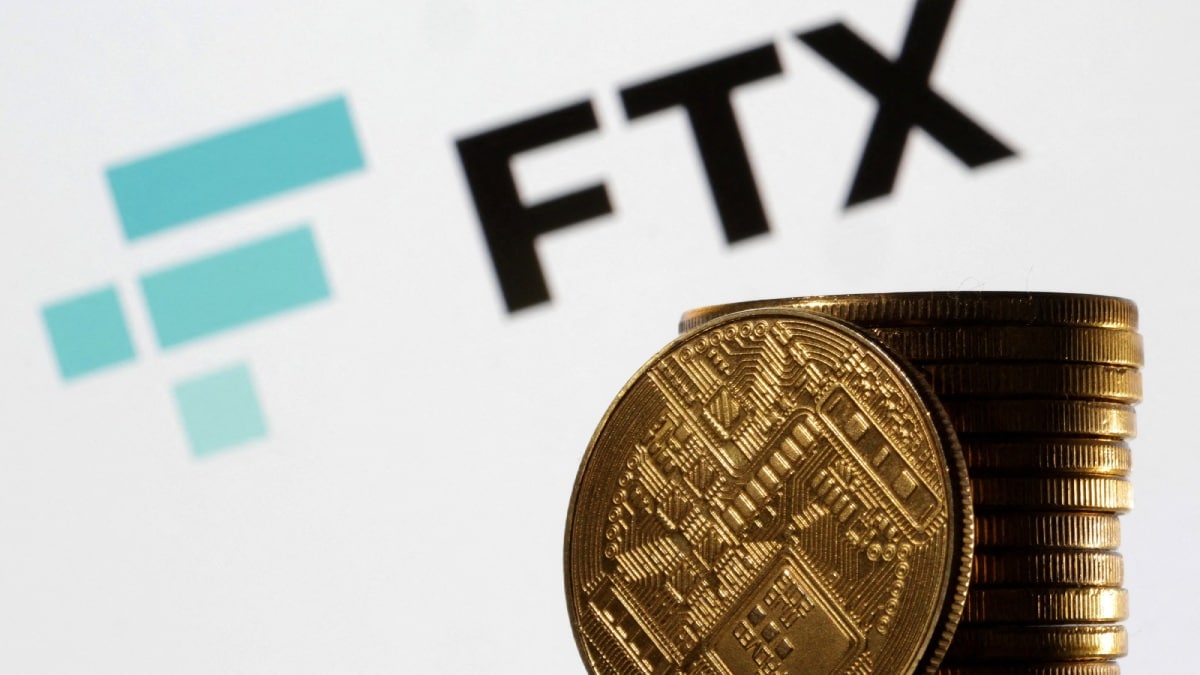Cryptocurrency investors have grown more cautious about who they do business with, after being burned last year by sudden collapses of Celsius Network, Voyager Digital, FTX and others, and fearing a regulatory crackdown will put more pressure on remaining firms.
The recent crypto platform bankruptcies trapped customer assets now worth around $34 billion (nearly Rs. 2,78,600 crore), according to Xclaim, which allows creditors to trade such claims.
To protect themselves, institutional crypto investors are switching to exchanges that offer stronger asset protection, boosting due diligence on trading partners, and executing trades in smaller chunks, among other new risk management measures, according to executives and industry data.
“Investors in this asset class have learned their lessons the hard way and now are being much much more picky about who to deal with,” said Samed Bouaynaya, a digital asset portfolio manager at London-based hedge fund Altana Wealth.
Binance.US and Coinbase Global are the latest crypto exchanges to come under scrutiny after the US Securities and Exchange Commission (SEC) sued the pair for allegedly breaching its rules, and industry executives expect more enforcement actions. Binance and Coinbase deny the regulator’s allegations.
Altana now prioritises exchanges that allow it to settle and hold its assets with independent third-party custodians such as the UK’s Copper and US-based Fireblocks. Because Binance does not give Altana that option, the hedge fund rarely leaves balances at Binance overnight, said Bouaynaya.
Binance did not respond to a request for comment but said in a statement last week that “customer funds are always safe.”
Anatoly Crachilov, chief executive of London-based Nickel Digital Asset Management, said nearly all its trading now takes place on exchanges that allow off-exchange settlement, meaning the assets are settled and held separately from the exchange, compared with 5 percent prior to the collapse of FTX.
Declining exchange balances of stablecoins and ether suggest that users are removing their assets from exchanges, although it is difficult to gauge what proportion of assets are moving to custody solutions, said Martin Lee, data journalist at blockchain tracker Nansen.
Spokespeople for Fireblocks and Copper said they were seeing a jump in demand for their services.
Greg Tusar, head of Coinbase’s institutional products, said Coinbase had taken a number of steps to ensure its clients’ assets are safe, including providing user agreements across all of its products guaranteeing clients’ continued rights as owner of those assets in the unlikely event of a bankruptcy.
“There definitely is a sense that people in general are focused on counterparty credit and counterparty risk. We feel like we’re broadly the beneficiary of that.”
‘Uncomfortable’ Binance exposure
Investors piled into cryptocurrencies when interest rates were low, pushing the market to a peak value of $3 trillion (nearly Rs. 2,45,78,100 crore) in 2021. But they turned cautious as rates rose, causing prices to slump and triggering fatal liquidity crunches for several crypto firms. The value of the crypto market has fallen to around $1.1 trillion (nearly Rs. 90,12,000 crore), according to CoinGecko data.
European crypto asset manager CoinShares ramped up its counterparty due diligence in the collapse of FTX. It now quizzes trading partners about their operations, cybersecurity set-up, credit exposure, and exposure to various cryptocurrencies, said CEO Jean-Marie Mognetti.
And while previously CoinShares tiered marketplaces as red, amber or green, the system is “very simple now,” said Mognetti. “It’s like red or green. There is no more amber.”
The crypto industry remains risky with highly volatile assets. Financial regulators like the SEC say many crypto companies flout applicable rules, meaning risk management still lags the traditional financial sector.
While the SEC crackdown on Binance.US has raised questions over its future, traders say dealing with Binance is unavoidable. It is the world’s largest exchange with around 60 percent of trading volumes globally, according to Kaiko data.
Binance’s U.S. affiliate said on Thursday last week it was halting dollar deposits. Two days earlier, the SEC asked a court to freeze its assets. The SEC alleged that Binance and its CEO Changpeng Zhao secretly controlled and diverted customers’ assets.
“This is inevitably risk we’re all carrying in crypto – we have uncomfortable concentration risk on one large exchange called Binance,” said Nickel’s Crachilov.
He warned that any more dramatic exchange failures “would perhaps inflict a nuclear crypto winter”.
When dealing with the riskiest exchanges, US-based crypto investor Arca tries to minimize its exposure by breaking up big trades into small chunks, said Wes Hansen, Arca’s director of trading and operations, without naming specific companies.
Its counterparty information requests are “much more intense and more often,” while the company also monitors Twitter for intelligence on which firms might be in trouble, said Hansen.
“Everyone’s just so scared in the market right now,” he added.
© Thomson Reuters 2023
Affiliate links may be automatically generated – see our ethics statement for details.

